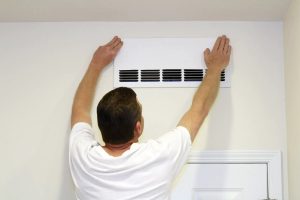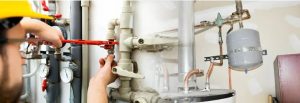Table Of Contents
Should You Have A Gas Heater In Your Bedroom?
It can be challenging to control room temperature when using central heating, especially if you don’t have air conditioning installed. However, unlike central heating systems that pump hot or cool air into your home, gas heaters use an actual flame to provide light warmth.
While some apartment building codes prohibit bringing gas heaters into bedrooms because of safety concerns, there are generally no restrictions on owning a heater in one’s residence. Gas heaters can have some adverse health effects if not used appropriately.
Therefore, you must seek safety advice and measures of using a gas heater in your bedroom. Four crucial factors can help you determine if it is legal to have a gas heater in your bedroom. Keep reading to discover more about these and much more.
What To Consider Before Having A Gas Heater
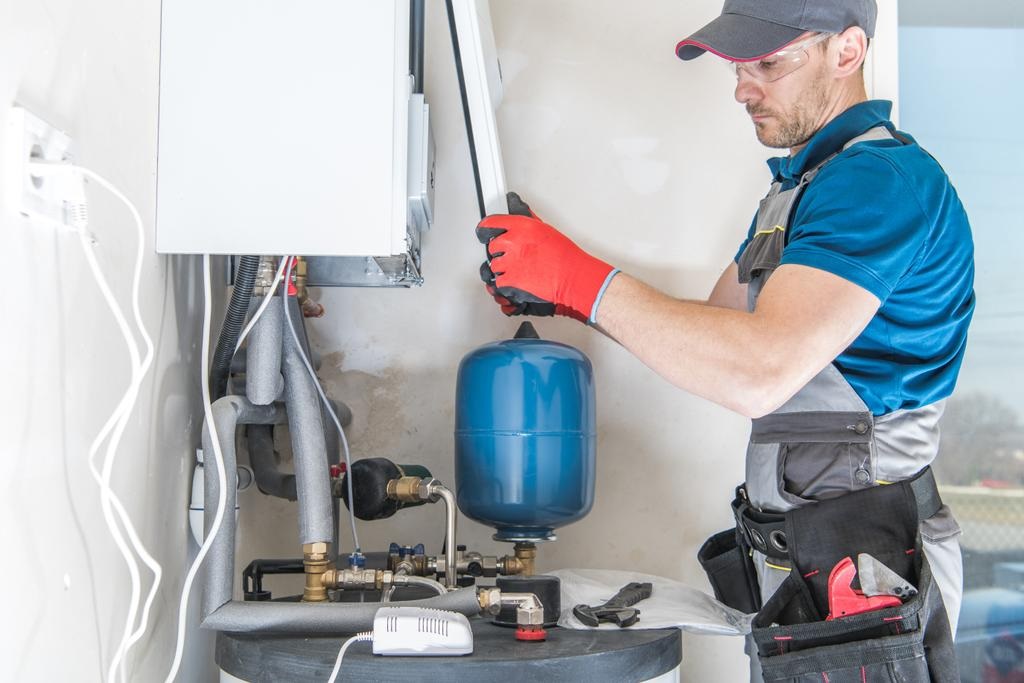
Cost
Gas heaters can be expensive to purchase and install, so homeowners should research before buying one for their home. There are a few different gas heaters, such as wall-mounted space heaters, vented room heaters, and portable gas heaters. The size of the heater depends on your bedroom size, how chilly it gets at night during winter and whether you use central heating during the day when you’re awake.
You can save on expenses by shopping around or asking friends to share information about the brands they have installed in their homes.
Level of Warmth Desired
Does your current heating system provide enough warmth in your bedroom, or will a gas heater make it too hot? How much can you spend on fuel and electricity bills if you use an additional gas heating source?
Building Restrictions
Your local building code department will have the most up-to-date information on codes in your area. Your landlord or homeowner’s association may also have some restrictions about installing a gas heater in your bedroom. Some landlords think that using a space heater to warm your room at night will help you save energy bills by not running the central heating system for long.
However, in some cases, you cannot have them in bedrooms, especially if there is no way to control them once you go to sleep. However, even if you live with roommates and you all agree to purchase and use a space heater each night, most apartment building codes do not permit this because of the dangers of carbon monoxide poisoning.
Although apartment building codes generally prohibit bringing a gas heater into bedrooms for safety reasons, it’s possible to make a bedroom gas heater safe by installing an oxygen depletion sensor and an exhaust fan.
Your Location and Personal Habits
Your location and personal habits will both determine whether installing a gas heater in your bedroom is right for you. If you are experiencing a cold climate and struggling to stay warm despite having good insulation, then perhaps investing in a permanent gas heater installed within the walls of your home would be most effective.
However, if you live somewhere where temperatures don’t often drop below 21 degrees Celsius (70 degrees Fahrenheit), you might find no need for this type of heater.
How To Setup Bedroom Gas Heaters
Step One: Prepare the Room
Before installing your bedroom gas heaters, it will be helpful to start small and gradually raise the temperature in the room in which the heater is used. This is important because heating a space too quickly can cause moisture damage.
If your house is extremely cold, you may want to consider adding insulation or weather stripping to any drafty areas of your home before proceeding with these next steps. Avoid warming up more than one room at a time, or your heater might overheat and be rendered useless.
Step Two: Position the Heater
Once you have chosen a place in your bedroom (or bedrooms) for your heater, make sure to clear away any furniture or other things that might get in the way of its installation. Before removing any items, however, it is essential to give yourself plenty of space to work in.
This means at least two metres behind where you plan on putting your heater and an additional two metres off to either side. Once you’re ready, carefully remove anything surrounding your heater’s intended location. After doing so, position your heater in its designated corner and attach it using the included mounting kit (i.e., screws).
Only apply about two kilograms of pressure when attaching these fixtures. You might need to get a slightly different model if they are too loose.
Step Three: Prepare the Gas Supply
Before you begin, open a window for ventilation and adjust your heater’s maximum heat setting. Close any doors leading to the area where the installation will occur, and make sure you turn off all other pilot lights – this includes pilot lights on other heaters, fireplaces, stoves, and ovens.
Now you should hose down (or vacuum) the area in which the heater will be installed. It will help produce an extra layer of protection against gas leaks by removing any dust or debris that could contact combustible materials. Once clean, attach the included regulator to your main gas line and tighten it with a wrench until you can barely turn it anymore.
Use another wrench to carefully turn the knob on the regulator counterclockwise to reduce pressure, then twist it one more half-turn. You should hear a hissing sound once the gas begins to flow into your heater; if you can’t hear anything, there might be a problem with your connection – you will need to try a different model.
Step Four: Test for Leaks
Before turning your heater on, check for potential leaks from the connections mentioned in step three by applying an open flame (i.e., match or lighter) to each of them. If you notice leakage at the connection point, tighten it immediately using a wrench until all signs of leakage have been eliminated. Don’t hesitate to call in a licensed professional if you are unable to solve the issue.
Step Five: Turn on the Gas Supply
Once you’ve installed your heater and fixed any leaks, you can rest easy knowing that it only takes the flick of a switch (not included) for your bedroom gas heaters to burst into life. Once turned on, leave this heater running for at least 30 minutes before using it – not doing this can result in incomplete combustion and lower the heater’s overall efficiency.
If possible, use an extension lead when using this gas appliance to avoid damaging its internal wiring; once plugged in, turn the knob near the pilot light counterclockwise until it reaches its lowest setting. Allow it to reach room temperature, after which you can turn the knob clockwise to increase the heat output. Note that if you do not follow these instructions, your heater may become damaged and cause a buildup of carbon monoxide.
Step Six: Maintain Your Heater
It is crucial to maintain your heaters safely and regularly. Check for any cracks or other damages in the heater once every six months using an instrument like a paper clip (to avoid scratching its surfaces). If at any point you notice that something is out of place, then you should consult the owner’s manual for proper handling techniques.
Note that replacing the glass on your heater is not recommended unless it is broken. If you ignore this warning and continue to run the heater in such a state, you risk causing significant damage.
How To Keep Your Gas Heater Safe
Venting
Gas heaters require proper venting. Vent holes allow the air to escape, subsequently allowing more oxygen – allowing your heater to stay functional. If you block off these vents with furniture or other objects, this will cause excess carbon dioxide to build up in your home – which is not healthy. Having an unvented heater in your house is a threat to you and your neighbors.
Extinguishing Equipment
You should never light up or burn anything near your heater, especially if you don’t have proper extinguishing equipment. The sudden temperature change can cause the flammable gas to explode, which could seriously harm or kill you.
Do not put yourself at risk by using inappropriate materials to extinguish a fire. Make sure you have access to water or other extinguishers – they must be easily accessible.
Electricity Usage
Gas heaters use a lot of electricity and can cause your electric bill to skyrocket if not used properly. Make sure you only use the heater when necessary, and be aware that using other appliances will cause your overall wattage intake to rise, which can draw more power from the heater than usual.
Markings on Floor
Always make sure to place your gas heater on a flat surface such as carpet or tile. If placed on wood, there might be overheating after prolonged usage due to lack of air circulation in between the wood beams, leading to incomplete combustion. If you put it on a flammable material such as a rag or cloth, this may cause an explosion.
Right Tools
Only use items that are compatible with your heater – including gloves and safety accessories like glasses or masks. Make sure they are appropriately maintained for your own safety. This will shield you from the risks associated with using gas heaters. You will avoid risks like getting burnt all because of not using the right protective devices when maintaining the system.
Do Not Leave Unattended
Only use the heater during cold weather. If you plan on going out for a long time, turn your heater off before leaving and make sure you turn it to the lowest setting possible, which would be about 7.2 degrees Celsius. Never leave your gas heater on overnight or when you go out for an extended period to avoid carbon buildup and potential explosions.
Monitoring
Ask yourself if you know how to read a carbon monoxide detector correctly. Usually, it goes off when there’s too much carbon monoxide in your house, but some models have faulty sensors. Therefore, make sure you can properly monitor what’s going on with your patio heater and appliances so you know when something needs changing or checking out.
Types Of Bedroom Gas Heaters
LPG Heaters
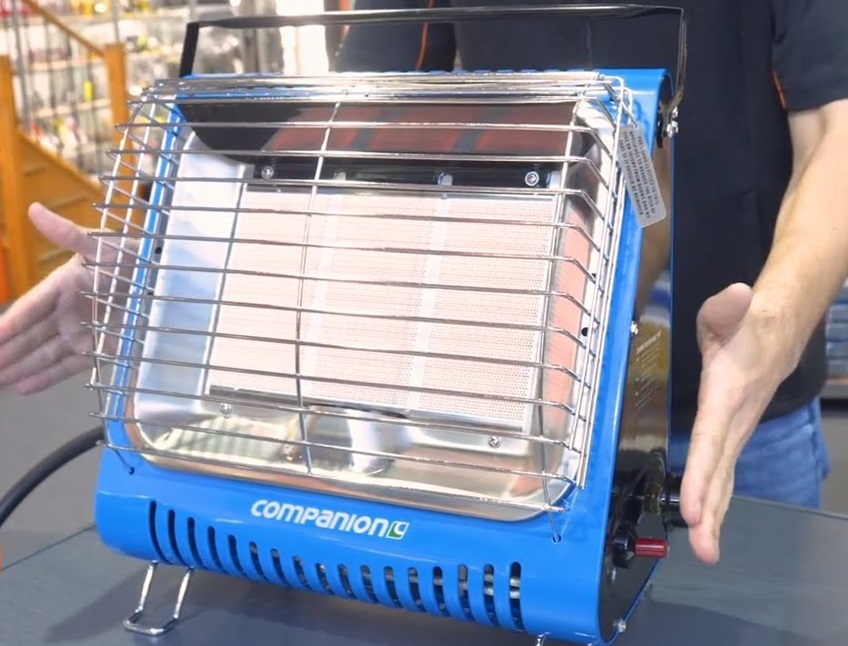
An LPG gas heater is a portable room heater that uses LPG as fuel. They are safe and conform to the rules and regulations of LPG appliances. It’s mainly used for heating small spaces and comes with an air-purifying fan that filters out dust particles from the air.
Some heaters also have a carbon filter attached at the rear side to reduce odor from vehicles or smoke from fireplaces. This heating appliance does not require electricity but operates on gas (LPG).
Unflued Gas Heaters
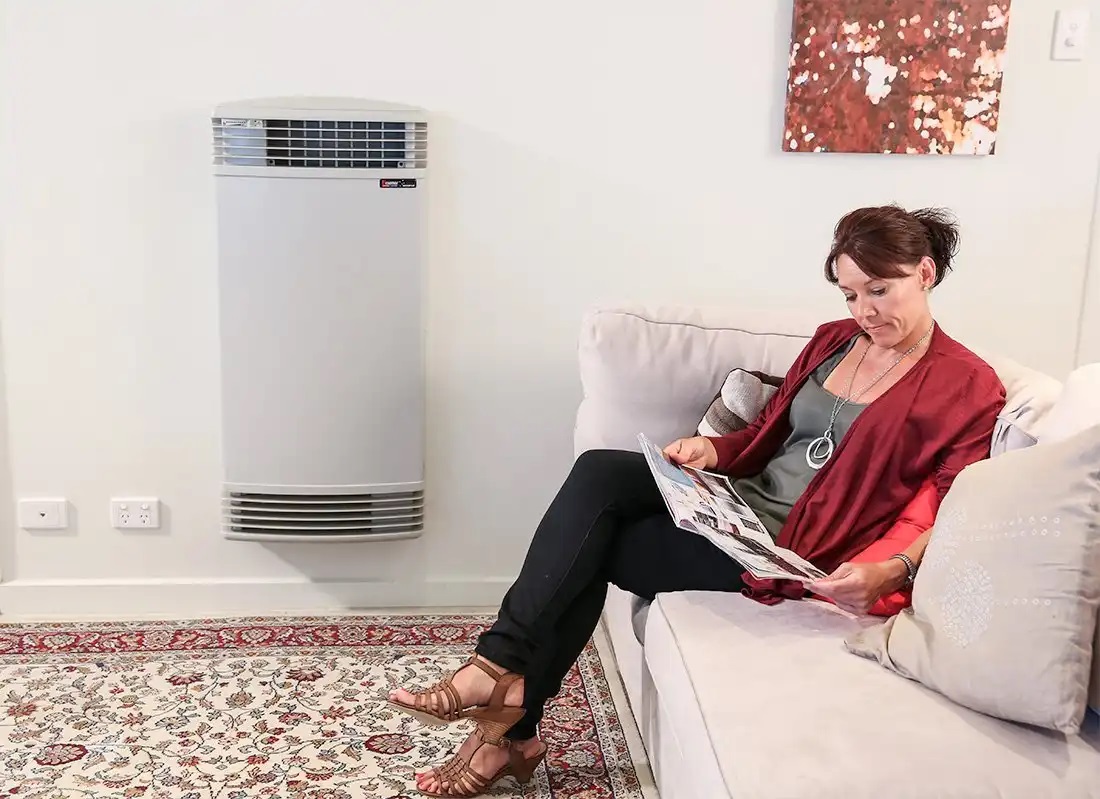
Unflued gas heaters are some of the different types of bedroom gas heaters. They are available in two main styles. One style is a wall-mounted unit with air ducts that distribute warm air through vents or registers to other areas in the room. The other type is a floor unit with an open base for warmth and an enclosed chimney section on top where combustion occurs.
Both styles are usually made from sheet metal, although some modern models use materials such as glass-filled polyamide plastic for the enclosure. Unflued gas heaters can be powered by natural gas or propane (LPG). If you’re using LPG, however, ensure that your house construction codes allow such a fuel source before trying to install any heater.
Propane Heaters
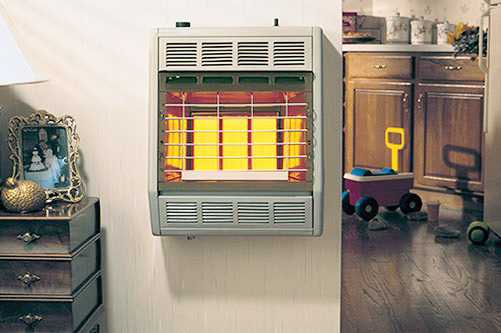
You can use it in any room where you need the most efficient heating. If your primary focus is to save money on energy bills, these heaters will generally be cheaper than electric options. However, you may find that they do not give off enough warmth in colder conditions and may require an upgrade.
Try Professional Gas Heater Installation
Gas heaters can be a safe and affordable form of supplemental heating, provided the unit is installed correctly within walls or other pressurized spaces. Even if you have a permanent gas source coming from another room, it’s wise to have a professional check the layout before installation to ensure that it is safe to operate. This will give you sound sleep, knowing there aren’t any leaks or potential safety hazards.






